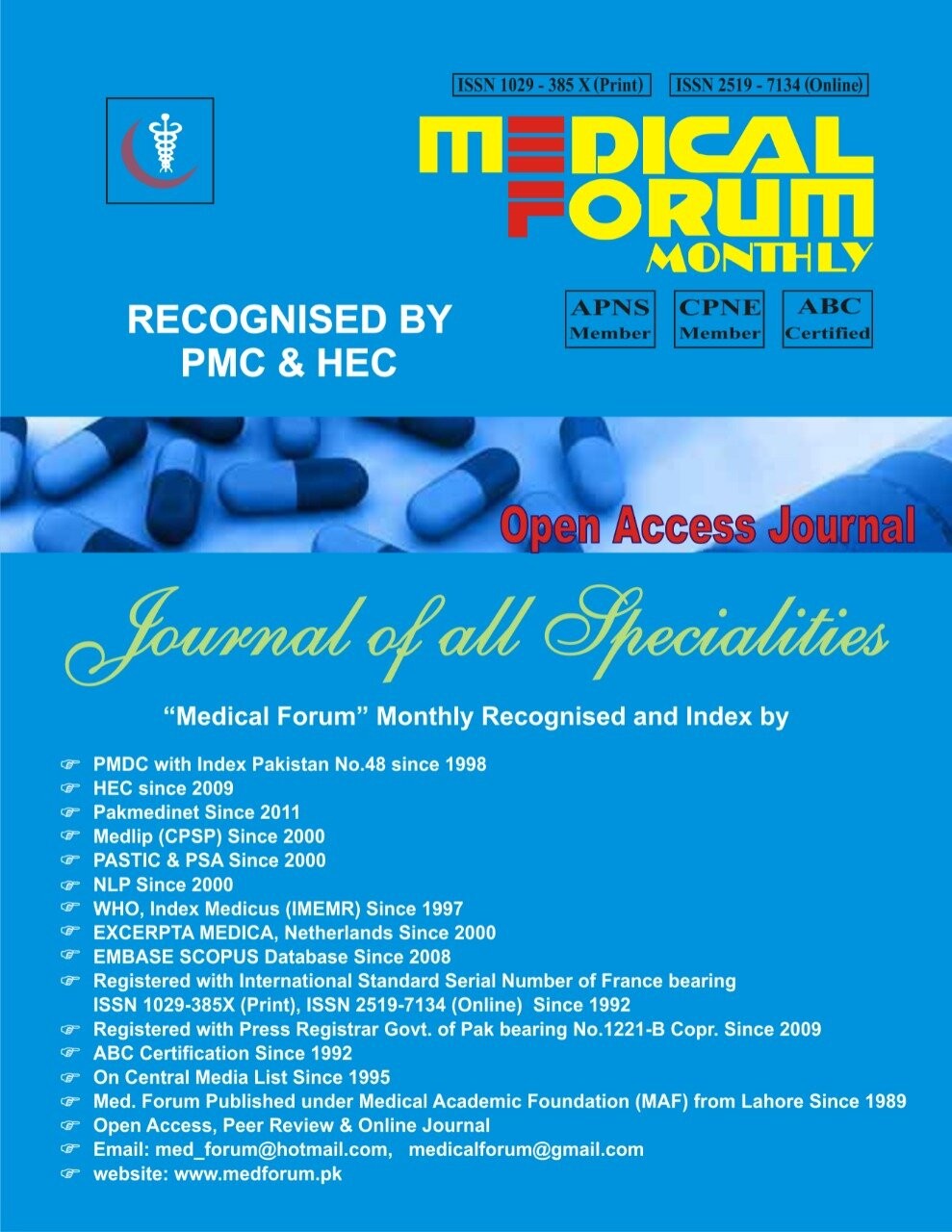
11.Role of Garlic (Allium Sativum) on Lead Induced Delayed Eruption of Incisors in Albino Wistar Rats
Rashid Javaid1, Daud Anthoney2, Maruf Christopher4, Muhammad Ilyas3, Asrar Ahmed1 and Qura-tul-Ain Idrees2
ABSTRACT
Objective: This study planned to evaluate the therapeutic effect of Allium sativum on lead induced delayed eruption of incisors of albino Wistar rats.
Study Design:
Place and Duration of Study: This study was conducted at the Post Graduate Medical Institute, Lahore. Study duration was one year from March 2019 to March 2020.
Materials and Methods: 68 adult albino Wistar rats were divided randomly into four groups (n=17) i.e., control, lead acetate, lead acetate with garlic and garlic alone. Right mandibular incisors were marked 1mm above the level of gingival papillae. The incisors were cut above this mark. The readings were measured by digital Vernier caliper. Incisors length was measured at day 0, 3, 6, 12 and 15 and eruption was calculated. The data was analyzed using SPSS 22.
Results: Eruption of incisors in albino Wistar rats in control was 3.30±0.72mm, in lead 2.43±1.19mm, lead + garlic 3.25±0.71mm and garlic 3.13±.91mm. At day 15, difference between Lead and lead with garlic was statistically significant (p-value 0.049).
Conclusion: The results showed that excessive lead intoxication is also a causative factor of delayed tooth eruption. The use of Allium sativum in routine diet and medicinal formulation could be helpful in patients or residents of lead polluted areas.
Key Words: Garlic, Allium Sativum, Delayed Eruption, Incisors, Albino Wistar Rat.
Citation of article: Javaid R, Anthoney D, Christopher M, Ilyas M, Ahmed A, Idrees QA. Role of Garlic (Allium Sativum) on Lead Induced Delayed Eruption of Incisors in Albino Wistar Rats. Med Forum 2022;33(5):44-48.
